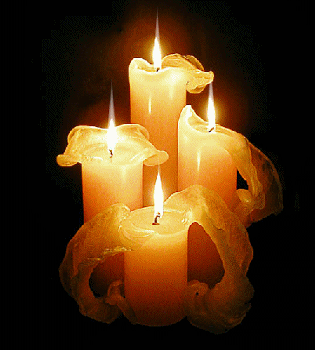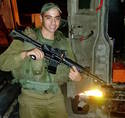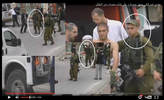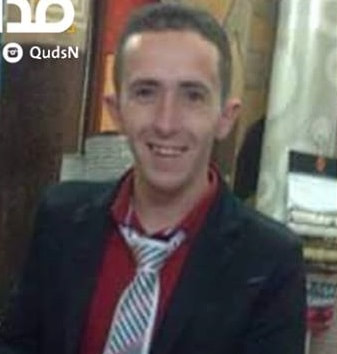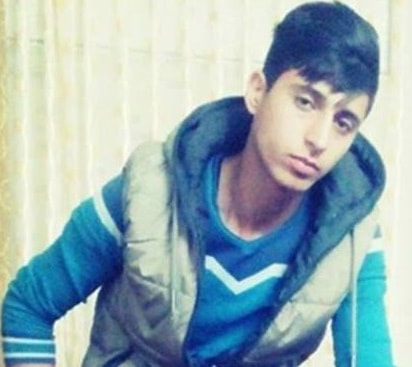6 sept 2016

Prof. Dov Shimon testified for the defense on Tuesday that the Hebron soldier's head shot to the immobilized terrorist was not what killed him, disagreeing with the pathologist who testified earlier.
The defense continued to present its case in Sgt. Elor Azaria's trial on Monday in the Military Court in Jaffa; Azaria is charged with committing manslaughter when he shot dead an already-immobilized attacker, Abed al Fatah al-Sharif, in Hebron.
One witness called to testimony was a cardiothoracic surgeon who testified that Azaria's shot did not cause al-Sharif's death, but rather a pulmonary embolism that was caused as a result of the first bullet that neutralized him, shot from a different soldier.
The surgeon, Prof. Dov Shimon, began by asking the panel of judges to issue a gag order on publishing his name for "reasons touching on his civilian business," but that request was denied.
Previously, a pathologist from the Abu Kabir Forensic Institute, Dr. Hadas Gips, had testified that al-Sharif was alive when Azaria shot him in the head, stating "The other wounds found on his body were not immediately fatal and if he had received appropriate medical treatment he would still be alive. Even without receiving medical attention he would most likely still be alive."
Shimon disagreed with that conclusion, stating, "This made me professionally uncomfortable," stating that his examination of the chest x-rays showed otherwise.
The defense continued to present its case in Sgt. Elor Azaria's trial on Monday in the Military Court in Jaffa; Azaria is charged with committing manslaughter when he shot dead an already-immobilized attacker, Abed al Fatah al-Sharif, in Hebron.
One witness called to testimony was a cardiothoracic surgeon who testified that Azaria's shot did not cause al-Sharif's death, but rather a pulmonary embolism that was caused as a result of the first bullet that neutralized him, shot from a different soldier.
The surgeon, Prof. Dov Shimon, began by asking the panel of judges to issue a gag order on publishing his name for "reasons touching on his civilian business," but that request was denied.
Previously, a pathologist from the Abu Kabir Forensic Institute, Dr. Hadas Gips, had testified that al-Sharif was alive when Azaria shot him in the head, stating "The other wounds found on his body were not immediately fatal and if he had received appropriate medical treatment he would still be alive. Even without receiving medical attention he would most likely still be alive."
Shimon disagreed with that conclusion, stating, "This made me professionally uncomfortable," stating that his examination of the chest x-rays showed otherwise.
3 sept 2016
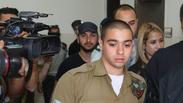
Op-ed: The Prosecution in Sgt. Elor Azaria’s trial is led by an impressive Military Advocate General and a sharp head lawyer, but as the trial continues to devolve into a convoluted side-show, it seems clearer and clearer that someone on that team should have pushed for a satisfactory plea bargain early on.
Though it’s unclear how Sgt. Elor Azaria’s trial will end, the IDF is currently suffering such a monumental loss and the damage being done to it is so colossal that you cannot help but wonder where was IDF Chief Military Advocate General Brig. Gen. Sharon Afek when the judges suggested a mediation agreement. For while the Defense was willing to accept it, the Prosecution was not.
Afek is very well-regarded within the legal community. He is considered pragmatic, professional and someone who is not utterly linked to one side of the political map. In the past, he has made very difficult decisions, like in the case of the rape charges against Brig. Gen. Ofek Buchris, or in deciding to close the controversial cases against Col. Yisrael Shomer, who shot a stone-thrower running away from him in the back, and Lt. Col. Neriya Yeshurun, who allegedly gave the command to open fire on a medical clinic during Operation Protective Edge. These decisions were greeted with understanding and helped build his professional authority.
His speech this week before the court was also important, but regarding Azaria’s case, Afek has made his first misstep, in not insisting that the Prosecution at least appear to attempt reaching a plea bargain that would have saved the IDF from the horrible position it now finds itself in.
The legal proceedings taking place in Jaffa are important, but the damage that is being done is so much more dramatic. Fighters are seeing a previously unimaginable sight: their direct commander is now facing their company commander, brigade commander and battalion commander who have all turned against him, while the platoon commander arrives to speak in defense of their commander and against the company and brigade commanders, as severe accusations are dished out.
And so, we are left with a commander (Azaria), a platoon commander and a deputy company commander who disagree with the company commander, brigade commander and battalion commander, while soldiers and officers give conflicting testimonies in Military Police investigations and in court. Regardless of the final verdict, each side will continue to stick to their own truth. The regular soldier understands one thing from all this: that the IDF has turned against a soldier who took out a terrorist. This is where the story begins and this is where it ends—in a breach of trust that may be incomparable to any other ever experienced between the IDF and the Israeli public, or within the IDF itself.
Anyone who understands this also understands how this situation could have been avoided: the Military Advocate General has put an exceptional lawyer on the case—reserve Lt. Col. Nadav Weisman, whose cross-examinations continue to surpass one another. It’s really no contest, then, when he is faced with the young soldiers and officers of the Kfir Brigade. Weisman has managed to convince Afek that this is a zero-sum game, that the case is one of the most important military cases to date, and that if nobody would get prosecuted each time one officer’s testimony would contradict another’s, there would be no more criminal justice in the military courts.
And yet, Afek still should have ordered to try and reach a plea, instead of an ostentatious trial, as this would have been in the army’s best interest. Since this wasn’t what happened, though, at this point, even if the Prosecution ends up winning, it would still be the army’s loss.
Though it’s unclear how Sgt. Elor Azaria’s trial will end, the IDF is currently suffering such a monumental loss and the damage being done to it is so colossal that you cannot help but wonder where was IDF Chief Military Advocate General Brig. Gen. Sharon Afek when the judges suggested a mediation agreement. For while the Defense was willing to accept it, the Prosecution was not.
Afek is very well-regarded within the legal community. He is considered pragmatic, professional and someone who is not utterly linked to one side of the political map. In the past, he has made very difficult decisions, like in the case of the rape charges against Brig. Gen. Ofek Buchris, or in deciding to close the controversial cases against Col. Yisrael Shomer, who shot a stone-thrower running away from him in the back, and Lt. Col. Neriya Yeshurun, who allegedly gave the command to open fire on a medical clinic during Operation Protective Edge. These decisions were greeted with understanding and helped build his professional authority.
His speech this week before the court was also important, but regarding Azaria’s case, Afek has made his first misstep, in not insisting that the Prosecution at least appear to attempt reaching a plea bargain that would have saved the IDF from the horrible position it now finds itself in.
The legal proceedings taking place in Jaffa are important, but the damage that is being done is so much more dramatic. Fighters are seeing a previously unimaginable sight: their direct commander is now facing their company commander, brigade commander and battalion commander who have all turned against him, while the platoon commander arrives to speak in defense of their commander and against the company and brigade commanders, as severe accusations are dished out.
And so, we are left with a commander (Azaria), a platoon commander and a deputy company commander who disagree with the company commander, brigade commander and battalion commander, while soldiers and officers give conflicting testimonies in Military Police investigations and in court. Regardless of the final verdict, each side will continue to stick to their own truth. The regular soldier understands one thing from all this: that the IDF has turned against a soldier who took out a terrorist. This is where the story begins and this is where it ends—in a breach of trust that may be incomparable to any other ever experienced between the IDF and the Israeli public, or within the IDF itself.
Anyone who understands this also understands how this situation could have been avoided: the Military Advocate General has put an exceptional lawyer on the case—reserve Lt. Col. Nadav Weisman, whose cross-examinations continue to surpass one another. It’s really no contest, then, when he is faced with the young soldiers and officers of the Kfir Brigade. Weisman has managed to convince Afek that this is a zero-sum game, that the case is one of the most important military cases to date, and that if nobody would get prosecuted each time one officer’s testimony would contradict another’s, there would be no more criminal justice in the military courts.
And yet, Afek still should have ordered to try and reach a plea, instead of an ostentatious trial, as this would have been in the army’s best interest. Since this wasn’t what happened, though, at this point, even if the Prosecution ends up winning, it would still be the army’s loss.
2 sept 2016

Op-ed: Azaria's defense is based on four main arguments, which obviously contradict each other; the circus that's going on in that courthouse isn't bringing anybody any honor, and the ridiculous claim that 'this is how everybody acts' is, like Breaking the Silence, distorting the public image of the IDF.
The trial of the soldier Elor Azaria is continuing to cause damage. The soldier's defense relies on four different arguments: The first is that the soldier acted properly—practically an Israeli hero. Kahalani stopping the Syrians in the Golan, Yoni Netanyahu leading the assault force in Operation Entebbe, and Azaria identifying an explosive that nobody else had spotted 11 minutes after the gunfire's cessation, shooting and saving everybody.
The second argument portrays Azaria as a victim of the military establishment and the political leadership (even if this leadership zigzags out of a fear of online commentators' disapproval). The third argument is mental health problems. And the fourth, the new one, is that the terrorist was dead already when he was shot.
You don't have to be a talented jurist to understand that these arguments contradict each other, but the most significant one of the lot is that Azaria acted properly. In this argument's name, a Pandora's box has been opened and along with it the gaping chasm beneath all the principles and values that had been obvious in the IDF.
In this argument's name this past week, several witnesses for the defense were pulverized on the witness stand of the military court in Jaffa. From the local resident who claimed that it was a hot day, so the jacket that the terrorist was wearing was evidence of explosives (but then it turned out that he had been photographed wearing a sweater himself on the same day) to the platoon commander who changed stories, claiming that the he was wary of an explosive, but he forgot to clear the area of people.
I've found myself exposed to a concrete threat of explosives thrice in my life. In one case, a real explosive was neutralized in time. The two other times, it was misidentified (including a terrorist with a long coat). You don't need experts: Common sense is sufficient. Anyone who thinks that there's an explosive next to him that's about to explode doesn't comfortably walk about the area like that. It doesn't matter if he's a general, a resident of Hebron, a paramedic, or a Palestinian. Even if there were dozens of kilograms of gear on his back, from my experience, his feet would be quick, and in a circumstance where he couldn't get away, he continues securing the situation from behind cover.
I suppose that anyone who testifies for and speaks in favor of Azaria understands this perfectly well. Nevertheless, a circus is going on there, and it doesn't matter how you look at it—it's not bringing honor to anyone. And if that weren't enough, a new, strange sort of Breaking-the-Silence trend is taking place.
I've been dealing with Breaking the Silence for years now. In my opinion, they distort the image of the IDF and consciously take part (even if it's unofficial) in the worldwide anti-Israeli movement. Now, thanks to the Azaria trial, Breaking the Silence has, for the first time, supporters from the other side.
Public figures say that this is how everybody behaves, and Azaria supporters explain to the world that the Israeli army isn't what it thinks it is. The consequences are not merely confined to the courtroom.
From the very beginning, I thought that Azaria could make it out of this trial safely because of reasonable doubt. He eliminated a dying terrorist, not a righteous from amongst the nations. He could have claimed that he didn't understand, that he lost his orientation, that he didn't hear, that it was an error in judgment. That would have left the investigation with a question mark: a flustered soldier or a mistake.
When the public and legal argument is that he acted properly, that the entire army is feeble and its commanders liars, the odds of this decrease, along with all of our chances to make it out of this safely.
Protest at Kfir Brigade swearing-in ceremony
Protestors calling for the release of Elor Azaria disrupted the Kfir Brigade swearing-in ceremony at the Western Wall; 'Do you trust the Kfir commanders to return your children? Do you trust the Kfir commanders not to abandon your children?'
Jerusalem police detained two people for questioning after they protested Thursday night at the Kfir Brigade's swearing-in ceremony at the Western Wall. Protestors standing on a nearby balcony shouted for the release of Elor Azaria and were charged with disturbing the peace.
Through a megaphone, one of the protestors shouted, "Do you trust the Kfir commanders to return your children? Do you trust the Kfir commanders not to abandon your children?"
Itamar Ben-Gvir, who is representing the two defendants, said that the police's actions are not legal. "It is unfortunate that the police practice a policy of silencing freedom of expression, which includes calling for the release of an Israeli soldier that fell victim to a failed Minister of Defense."
The headquarters for the campaign working for the release of Elor Azaria responded by saying, "Two key activists were detained and questioned for four hours. The activists made it clear that their actions were not in violation of the law and furthermore, that their actions embody those of model citizens. The protest at the Western Wall is us intensifying our activities. A protest at the court in Jaffa is also planned."
At the trial Thursday, the deputy company commander was called to testify by the defense. At the military court in Jaffa, the commander was asked about the mood of the company following Azaria shooting the neutralized attacker. In his statement, Y. said, "I personally hear concern being raised all the time. I hear people saying 'if I see a suspected terrorist, I don't want to shoot because I don't want to get involved, I don't want the trouble.' A lot of people wanted to leave the platoon because they felt like they wouldn't get our support in the moment of truth."
The IDF Judge Advocate General, Brig. Gen. Sharon Afek, referenced the trial without referring to it by name, saying, "You must stand trial even in the middle of a storm."
The trial of the soldier Elor Azaria is continuing to cause damage. The soldier's defense relies on four different arguments: The first is that the soldier acted properly—practically an Israeli hero. Kahalani stopping the Syrians in the Golan, Yoni Netanyahu leading the assault force in Operation Entebbe, and Azaria identifying an explosive that nobody else had spotted 11 minutes after the gunfire's cessation, shooting and saving everybody.
The second argument portrays Azaria as a victim of the military establishment and the political leadership (even if this leadership zigzags out of a fear of online commentators' disapproval). The third argument is mental health problems. And the fourth, the new one, is that the terrorist was dead already when he was shot.
You don't have to be a talented jurist to understand that these arguments contradict each other, but the most significant one of the lot is that Azaria acted properly. In this argument's name, a Pandora's box has been opened and along with it the gaping chasm beneath all the principles and values that had been obvious in the IDF.
In this argument's name this past week, several witnesses for the defense were pulverized on the witness stand of the military court in Jaffa. From the local resident who claimed that it was a hot day, so the jacket that the terrorist was wearing was evidence of explosives (but then it turned out that he had been photographed wearing a sweater himself on the same day) to the platoon commander who changed stories, claiming that the he was wary of an explosive, but he forgot to clear the area of people.
I've found myself exposed to a concrete threat of explosives thrice in my life. In one case, a real explosive was neutralized in time. The two other times, it was misidentified (including a terrorist with a long coat). You don't need experts: Common sense is sufficient. Anyone who thinks that there's an explosive next to him that's about to explode doesn't comfortably walk about the area like that. It doesn't matter if he's a general, a resident of Hebron, a paramedic, or a Palestinian. Even if there were dozens of kilograms of gear on his back, from my experience, his feet would be quick, and in a circumstance where he couldn't get away, he continues securing the situation from behind cover.
I suppose that anyone who testifies for and speaks in favor of Azaria understands this perfectly well. Nevertheless, a circus is going on there, and it doesn't matter how you look at it—it's not bringing honor to anyone. And if that weren't enough, a new, strange sort of Breaking-the-Silence trend is taking place.
I've been dealing with Breaking the Silence for years now. In my opinion, they distort the image of the IDF and consciously take part (even if it's unofficial) in the worldwide anti-Israeli movement. Now, thanks to the Azaria trial, Breaking the Silence has, for the first time, supporters from the other side.
Public figures say that this is how everybody behaves, and Azaria supporters explain to the world that the Israeli army isn't what it thinks it is. The consequences are not merely confined to the courtroom.
From the very beginning, I thought that Azaria could make it out of this trial safely because of reasonable doubt. He eliminated a dying terrorist, not a righteous from amongst the nations. He could have claimed that he didn't understand, that he lost his orientation, that he didn't hear, that it was an error in judgment. That would have left the investigation with a question mark: a flustered soldier or a mistake.
When the public and legal argument is that he acted properly, that the entire army is feeble and its commanders liars, the odds of this decrease, along with all of our chances to make it out of this safely.
Protest at Kfir Brigade swearing-in ceremony
Protestors calling for the release of Elor Azaria disrupted the Kfir Brigade swearing-in ceremony at the Western Wall; 'Do you trust the Kfir commanders to return your children? Do you trust the Kfir commanders not to abandon your children?'
Jerusalem police detained two people for questioning after they protested Thursday night at the Kfir Brigade's swearing-in ceremony at the Western Wall. Protestors standing on a nearby balcony shouted for the release of Elor Azaria and were charged with disturbing the peace.
Through a megaphone, one of the protestors shouted, "Do you trust the Kfir commanders to return your children? Do you trust the Kfir commanders not to abandon your children?"
Itamar Ben-Gvir, who is representing the two defendants, said that the police's actions are not legal. "It is unfortunate that the police practice a policy of silencing freedom of expression, which includes calling for the release of an Israeli soldier that fell victim to a failed Minister of Defense."
The headquarters for the campaign working for the release of Elor Azaria responded by saying, "Two key activists were detained and questioned for four hours. The activists made it clear that their actions were not in violation of the law and furthermore, that their actions embody those of model citizens. The protest at the Western Wall is us intensifying our activities. A protest at the court in Jaffa is also planned."
At the trial Thursday, the deputy company commander was called to testify by the defense. At the military court in Jaffa, the commander was asked about the mood of the company following Azaria shooting the neutralized attacker. In his statement, Y. said, "I personally hear concern being raised all the time. I hear people saying 'if I see a suspected terrorist, I don't want to shoot because I don't want to get involved, I don't want the trouble.' A lot of people wanted to leave the platoon because they felt like they wouldn't get our support in the moment of truth."
The IDF Judge Advocate General, Brig. Gen. Sharon Afek, referenced the trial without referring to it by name, saying, "You must stand trial even in the middle of a storm."
1 sept 2016

Y. took the stand on Thursday in the manslaughter trial of the Hebron soldier; he testified that the process was causing concern amongst the soldiers.
The trial of Sgt. Elor Azaria continued on Thursday with the testimony of Deputy Company Commander Y., who was called by the defense team for the Kfir Brigade soldier accused of committing manslaughter when he shot dead the immobilized Palestinian attacker, Abdel-Fattah al-Sharif.
Y., who was not present at the scene of the incident, was asked about the company's feelings after the killing. He testified, "Fear is growing and growing all the time. I personally hear from people who say that 'if there's a terrorist and he's not a danger, I won't open fire because I don't want to get into trouble, soon I'm going to be discharged because I don’t want mistakes.' It was the same in the company, and in the beginning there were soldiers who wanted to leave the company because they felt that they wouldn't receive backup in real time."
Y. also told the court, "We say to the soldiers that it's a serious incident. The brigade commander, the battalion commander and the company commander said that Elor is a liar. Most of the soldiers think otherwise. If you talk with soldiers about something that's 'forbidden,' it changes the mindset, and in my opinion it influences their testimony in the investigation.
"In the beginning, I also though one thing and afterwards I thought something else. I'm still uncertain about certain things. What I do today is generally get the soldiers to remain in the company and to get through this crisis, even in regards to (the military) system. To keep them so that they won't leave their positions in combat service."
When questioned by the Military Police, Y. related a conversation that he had with Azaria on the day of the shooting, between Azaria's conversation with his lawyer and the brigade commander. Y. alleged that Azaria said that he had been afraid of a possible explosive.
The trial of Sgt. Elor Azaria continued on Thursday with the testimony of Deputy Company Commander Y., who was called by the defense team for the Kfir Brigade soldier accused of committing manslaughter when he shot dead the immobilized Palestinian attacker, Abdel-Fattah al-Sharif.
Y., who was not present at the scene of the incident, was asked about the company's feelings after the killing. He testified, "Fear is growing and growing all the time. I personally hear from people who say that 'if there's a terrorist and he's not a danger, I won't open fire because I don't want to get into trouble, soon I'm going to be discharged because I don’t want mistakes.' It was the same in the company, and in the beginning there were soldiers who wanted to leave the company because they felt that they wouldn't receive backup in real time."
Y. also told the court, "We say to the soldiers that it's a serious incident. The brigade commander, the battalion commander and the company commander said that Elor is a liar. Most of the soldiers think otherwise. If you talk with soldiers about something that's 'forbidden,' it changes the mindset, and in my opinion it influences their testimony in the investigation.
"In the beginning, I also though one thing and afterwards I thought something else. I'm still uncertain about certain things. What I do today is generally get the soldiers to remain in the company and to get through this crisis, even in regards to (the military) system. To keep them so that they won't leave their positions in combat service."
When questioned by the Military Police, Y. related a conversation that he had with Azaria on the day of the shooting, between Azaria's conversation with his lawyer and the brigade commander. Y. alleged that Azaria said that he had been afraid of a possible explosive.
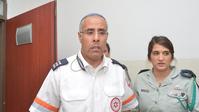
Magen David Adom paramedic testifies as defense team continues to call witnesses; describes scene as 'chaotic,' recalls running out of fear of terrorist exploding.
Sgt. Elor Azaria’s defense teams continued to call witnesses to the dock Thursday morning as legal proceeding continued in a special military court in Jaffa.
Azaria was indicted for manslaughter after he was captured on camera shooting the already- neutralized Palestinian terrorist— Abed al Fatah al-Sharif— to death in Hebron.
The first witness called to the stand was Magen David Adom (MDA) paramedic, Zahi Yahav, who was present at the scene. Yahav described the scene as chaotic, noting that during his 22 years in MDA he could not recall an incident of comparable disorder.
“There were screams of ‘life-threatening danger’, ‘the terrorist is moving’, ‘knife’, ‘he could be boobytrapped’, ‘don’t go near him until the sappers arrive’, ‘stand back,’” Yahav said.
“Theses are the shouts which I remember hearing. They caused me to speed up and escape from the area as quick as possible. I was under a lot of pressure...I ran because I was frightened that I would be blown up. I was genuinely scared of an explosion.”
Elaborating on the fear of an explosive device, Yahav said that warnings were published every day about potential strikes of this kind: “The threat exists all the time and we, as paramedics, cannot ignore it," he continued.
"In this intifada, or however you refer to it, I was always waiting for this kind of explosion and I wondered why 14-year-old children were sent to fight against a large and strong army with soldiers and guns. I thought that this boy must be the opening of a larger ambush of terrorists or explosions planted in the area. That is what was in my head and that is why I feared that there could be an explosion.”
The testimony comes four days after the proceedings resumed and Azaria’s defense team called Lt. Col. (res.) Eliyahu Liebman, who has served as the Chief Security Officer in Hebron for the last 22 years and has been the recipient of a medal of honor from former Defense Minister Moshe Ya’alon, to the witness box. Liebman too, described concerns of the terrorist exploding.
One day later, the first military officer, Lt. 'M' also corroborated Azaria’s defense claims, recalling how he had instructed his soldiers to stand away from the terrorist fearing that he might explode himself.
Sgt. Elor Azaria’s defense teams continued to call witnesses to the dock Thursday morning as legal proceeding continued in a special military court in Jaffa.
Azaria was indicted for manslaughter after he was captured on camera shooting the already- neutralized Palestinian terrorist— Abed al Fatah al-Sharif— to death in Hebron.
The first witness called to the stand was Magen David Adom (MDA) paramedic, Zahi Yahav, who was present at the scene. Yahav described the scene as chaotic, noting that during his 22 years in MDA he could not recall an incident of comparable disorder.
“There were screams of ‘life-threatening danger’, ‘the terrorist is moving’, ‘knife’, ‘he could be boobytrapped’, ‘don’t go near him until the sappers arrive’, ‘stand back,’” Yahav said.
“Theses are the shouts which I remember hearing. They caused me to speed up and escape from the area as quick as possible. I was under a lot of pressure...I ran because I was frightened that I would be blown up. I was genuinely scared of an explosion.”
Elaborating on the fear of an explosive device, Yahav said that warnings were published every day about potential strikes of this kind: “The threat exists all the time and we, as paramedics, cannot ignore it," he continued.
"In this intifada, or however you refer to it, I was always waiting for this kind of explosion and I wondered why 14-year-old children were sent to fight against a large and strong army with soldiers and guns. I thought that this boy must be the opening of a larger ambush of terrorists or explosions planted in the area. That is what was in my head and that is why I feared that there could be an explosion.”
The testimony comes four days after the proceedings resumed and Azaria’s defense team called Lt. Col. (res.) Eliyahu Liebman, who has served as the Chief Security Officer in Hebron for the last 22 years and has been the recipient of a medal of honor from former Defense Minister Moshe Ya’alon, to the witness box. Liebman too, described concerns of the terrorist exploding.
One day later, the first military officer, Lt. 'M' also corroborated Azaria’s defense claims, recalling how he had instructed his soldiers to stand away from the terrorist fearing that he might explode himself.
30 aug 2016
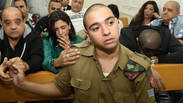
The Defense called Hebron civilian security contingency squad member Ashi Horowitz, who reaffirmed Sgt. Elor Azaria’s claim that there was concern over the terrorist having an explosive device on his person prior to Azaria killing him.
The trial of Sgt. Elor Azaria, who was filmed shooting and killing a neutralized Palestinian terrorist in Hebron, continued on Tuesday. Following yesterday’s testimony of Lt. M. in defense of Azaria, Tuesday saw Ashi Horowitz, who serves on the Hebron civilian security contingency squad, come up to the stand. Horowitz corroborated Azaria’s claim that there was danger that the terrorist, who had already been neutralized and lying unarmed on the ground, still posed a threat.
Horowitz testified that he arrived on the scene shortly after the attack, carried out by two terrorists, the second of which died during attack. “I kept thinking the incident was over, until I heard my friends from the contingency squad say, ‘He’s moving, he might have a bomb on him.’ The incident was far from over, and we definitely were not going home at that moment. I had my gun pulled out. More forces began to arrive, and like in any event, it became a mess as more and more forces got there, including ambulances, caretakers and soldiers. That’s how the incident developed.”
Horowitz stated that he had been on the scene for about half an hour, during which no professional or commanding official examined the body or gave permission to touch it. “At first, I thought the terrorists were (both) dead, but then people began shouting, about what could happen next,” and that “The terrorist was moving.”
He continued by saying, “I’m not sure who yelled it, but you can clearly hear the yelling on (the human rights organization) B’Tselem’s video, in which our guys on the contingency squad warn the surrounding forces and people not to come close to the terrorist. After that, I had my back turned to him and was looking at the wounded soldier being evacuated. While this was going on, I heard a gunshot.”
“The terrorist wasn’t dressed compatibly with the weather in the area,” recounted Horowitz. “The forecast given in the media that day spoke of a heat wave, but the terrorist was dressed in a suspicious manner, with a thick, black, buttoned up coat.
Horowitz stated that when one of his friends from the contingency squad came close to the terrorist and touched him, “There were shouts not to go near and not to touch him. My friend was told to move away and not to try and turn him over. He was told, ‘It isn’t a puppet, it’s a terrorist.’ He was warned of the possibility that there might be an explosive device that (my friend) could trigger by touching the terrorist.”
He also refuted claims made by Former Yehuda Brigade commander, Col. Yariv Ben-Ezra, who testified that soldiers serving in the Hebron area were instructed to evacuate neutralized terrorists as quickly as possible to avoid having their presence provoke local Palestinians. “Hebron creates a lot of terrorism, and I don’t think it’s because of postponing medical treatment or evacuating a body. The brigade commander is mixing up different political positions. I appreciate him, but he didn’t manage to overcome the terrorism in Hebron during his time there.”
When asked about previous testimonies that contradicted Azaria’s, such as the testimony given by Kfir Brigade company commander Tom Na'aman, Horowitz disregarded them, specifying that Na’aman in particular was led by his leftist political views. “What we have here is a soldier who has been sitting (in jail) for several months now despite his justifiable actions,” he told the court. “However, I still think that’s preferable than having the brigade commander stand here giving explanations as to why Jews were blown up and killed in the incident.”
The court was adjourned after about an hour and a half, due to noise coming from a protest held outside the courthouse. The police was called to disperse it.
Horowitz’s testimony came a day after Lt. M. took the stand and was cross-examined on conflicting testimonies he gave over whether there was any indication that the neutralized terrorist posed any further threat.
The trial of Sgt. Elor Azaria, who was filmed shooting and killing a neutralized Palestinian terrorist in Hebron, continued on Tuesday. Following yesterday’s testimony of Lt. M. in defense of Azaria, Tuesday saw Ashi Horowitz, who serves on the Hebron civilian security contingency squad, come up to the stand. Horowitz corroborated Azaria’s claim that there was danger that the terrorist, who had already been neutralized and lying unarmed on the ground, still posed a threat.
Horowitz testified that he arrived on the scene shortly after the attack, carried out by two terrorists, the second of which died during attack. “I kept thinking the incident was over, until I heard my friends from the contingency squad say, ‘He’s moving, he might have a bomb on him.’ The incident was far from over, and we definitely were not going home at that moment. I had my gun pulled out. More forces began to arrive, and like in any event, it became a mess as more and more forces got there, including ambulances, caretakers and soldiers. That’s how the incident developed.”
Horowitz stated that he had been on the scene for about half an hour, during which no professional or commanding official examined the body or gave permission to touch it. “At first, I thought the terrorists were (both) dead, but then people began shouting, about what could happen next,” and that “The terrorist was moving.”
He continued by saying, “I’m not sure who yelled it, but you can clearly hear the yelling on (the human rights organization) B’Tselem’s video, in which our guys on the contingency squad warn the surrounding forces and people not to come close to the terrorist. After that, I had my back turned to him and was looking at the wounded soldier being evacuated. While this was going on, I heard a gunshot.”
“The terrorist wasn’t dressed compatibly with the weather in the area,” recounted Horowitz. “The forecast given in the media that day spoke of a heat wave, but the terrorist was dressed in a suspicious manner, with a thick, black, buttoned up coat.
Horowitz stated that when one of his friends from the contingency squad came close to the terrorist and touched him, “There were shouts not to go near and not to touch him. My friend was told to move away and not to try and turn him over. He was told, ‘It isn’t a puppet, it’s a terrorist.’ He was warned of the possibility that there might be an explosive device that (my friend) could trigger by touching the terrorist.”
He also refuted claims made by Former Yehuda Brigade commander, Col. Yariv Ben-Ezra, who testified that soldiers serving in the Hebron area were instructed to evacuate neutralized terrorists as quickly as possible to avoid having their presence provoke local Palestinians. “Hebron creates a lot of terrorism, and I don’t think it’s because of postponing medical treatment or evacuating a body. The brigade commander is mixing up different political positions. I appreciate him, but he didn’t manage to overcome the terrorism in Hebron during his time there.”
When asked about previous testimonies that contradicted Azaria’s, such as the testimony given by Kfir Brigade company commander Tom Na'aman, Horowitz disregarded them, specifying that Na’aman in particular was led by his leftist political views. “What we have here is a soldier who has been sitting (in jail) for several months now despite his justifiable actions,” he told the court. “However, I still think that’s preferable than having the brigade commander stand here giving explanations as to why Jews were blown up and killed in the incident.”
The court was adjourned after about an hour and a half, due to noise coming from a protest held outside the courthouse. The police was called to disperse it.
Horowitz’s testimony came a day after Lt. M. took the stand and was cross-examined on conflicting testimonies he gave over whether there was any indication that the neutralized terrorist posed any further threat.
